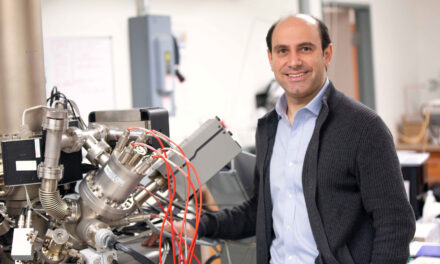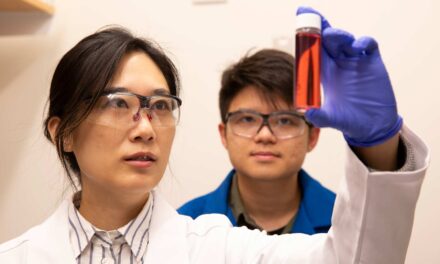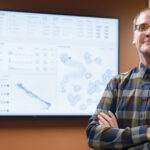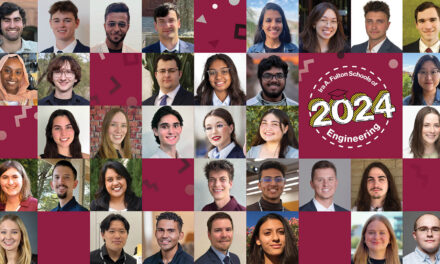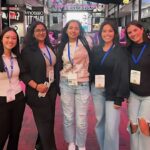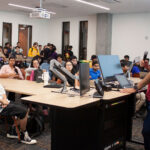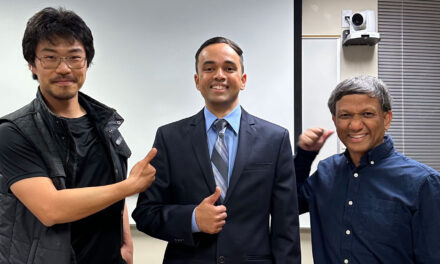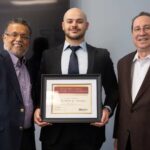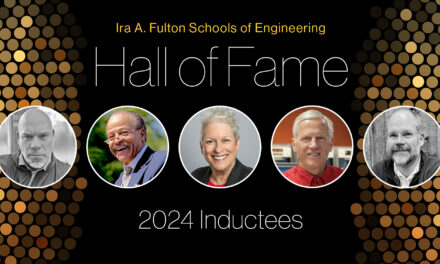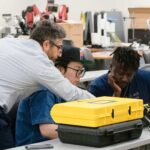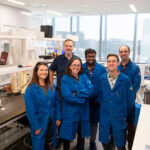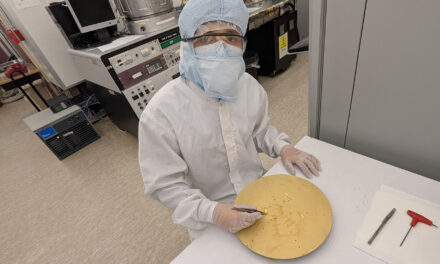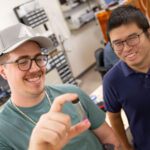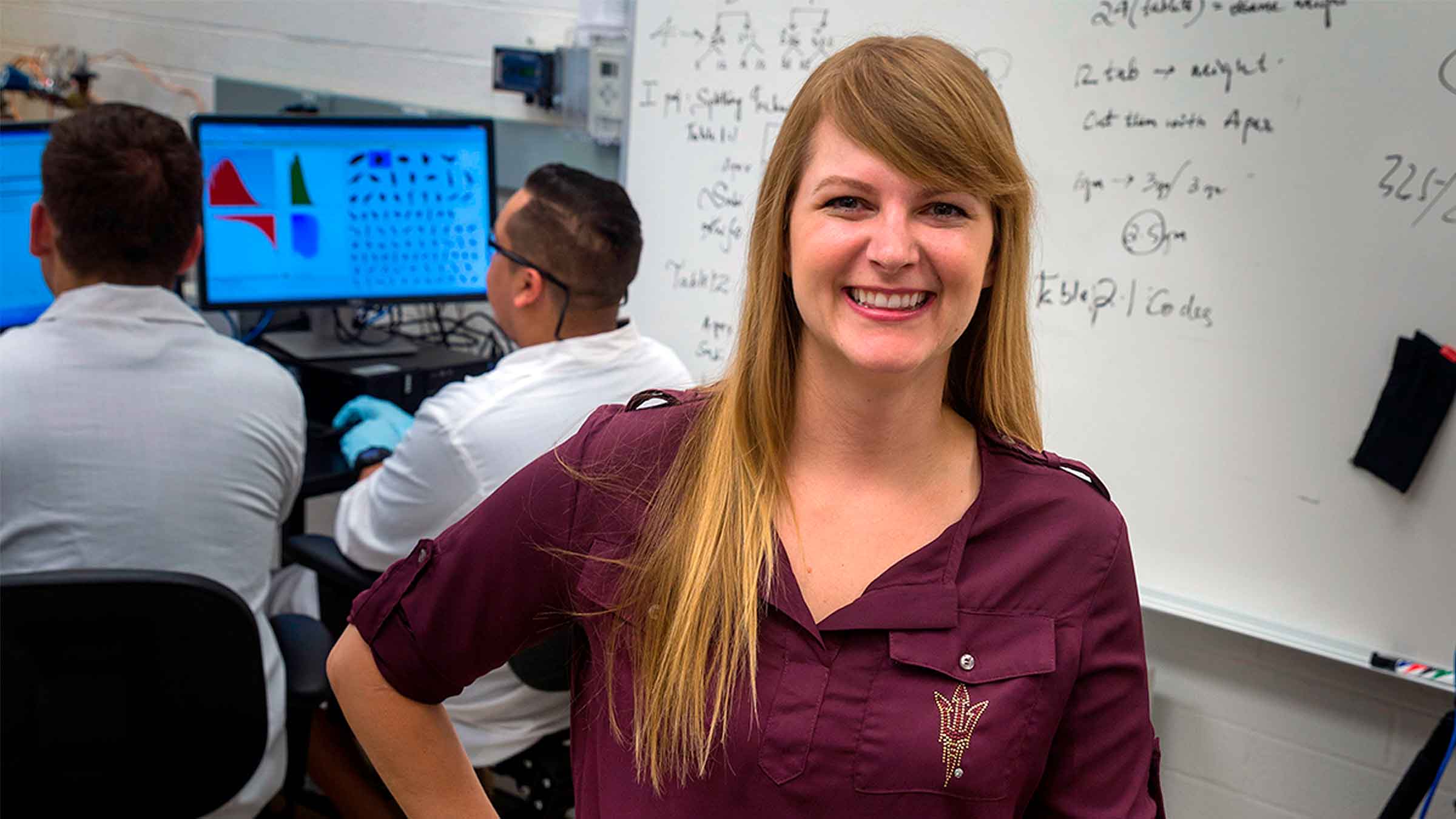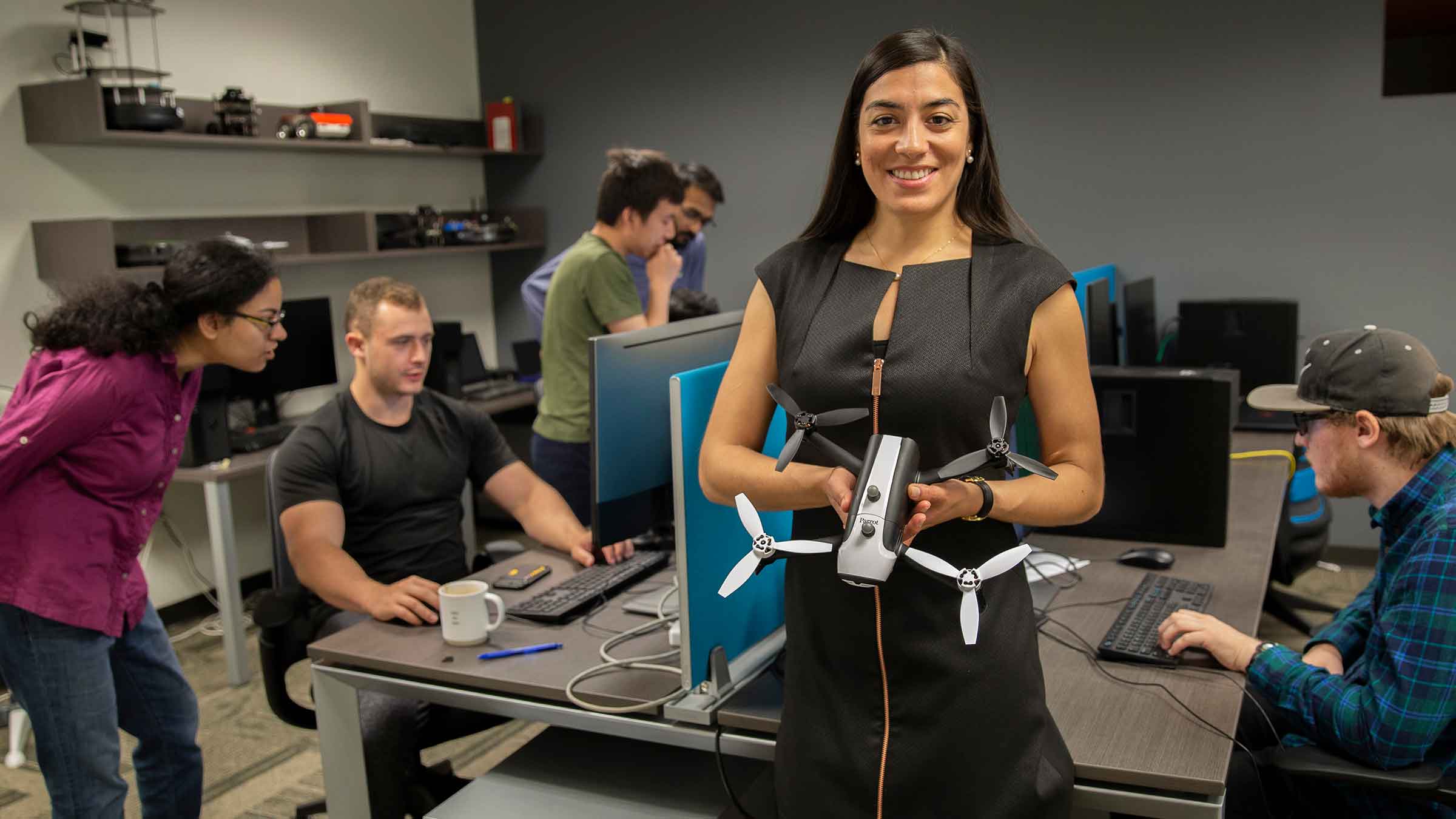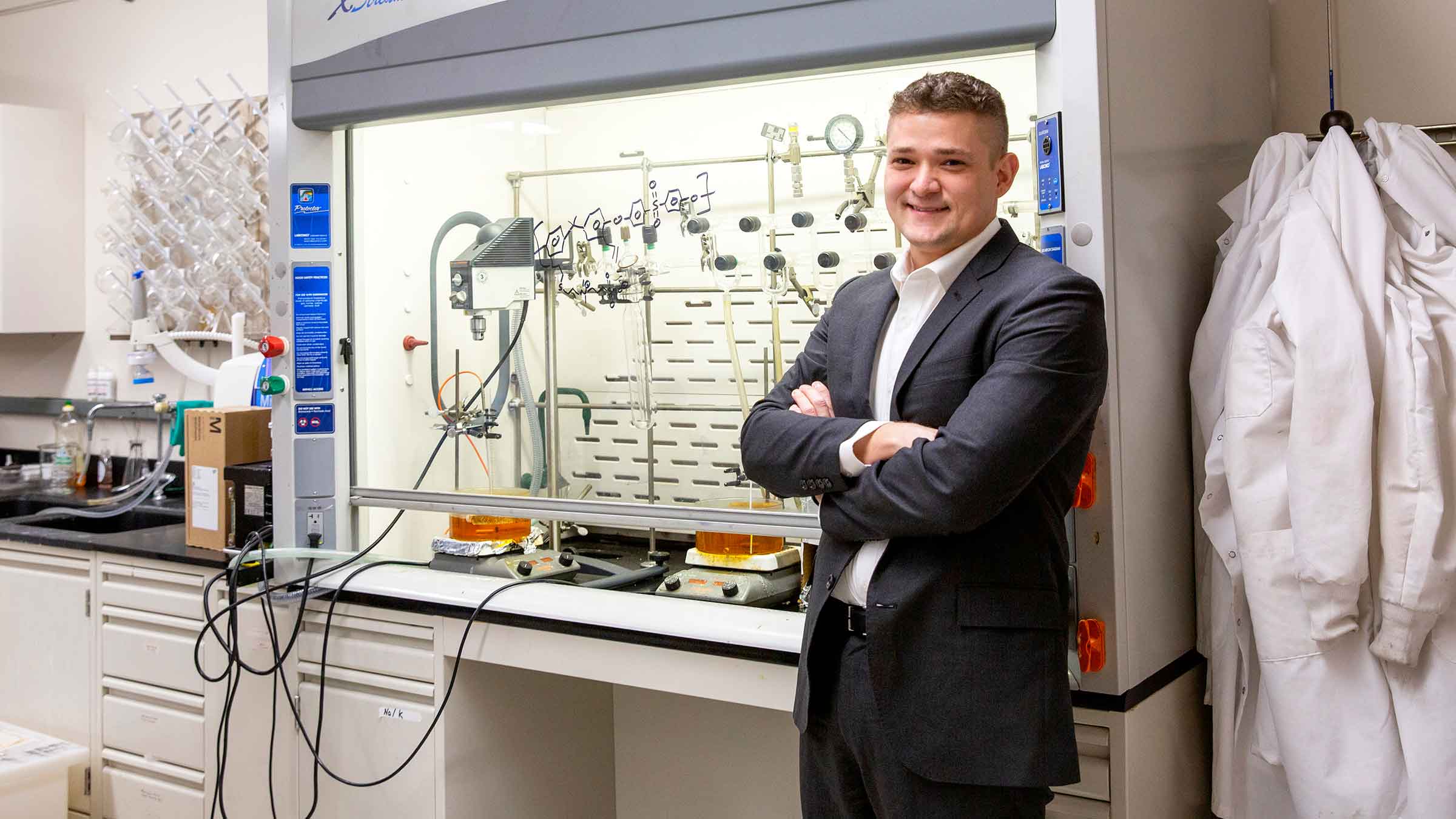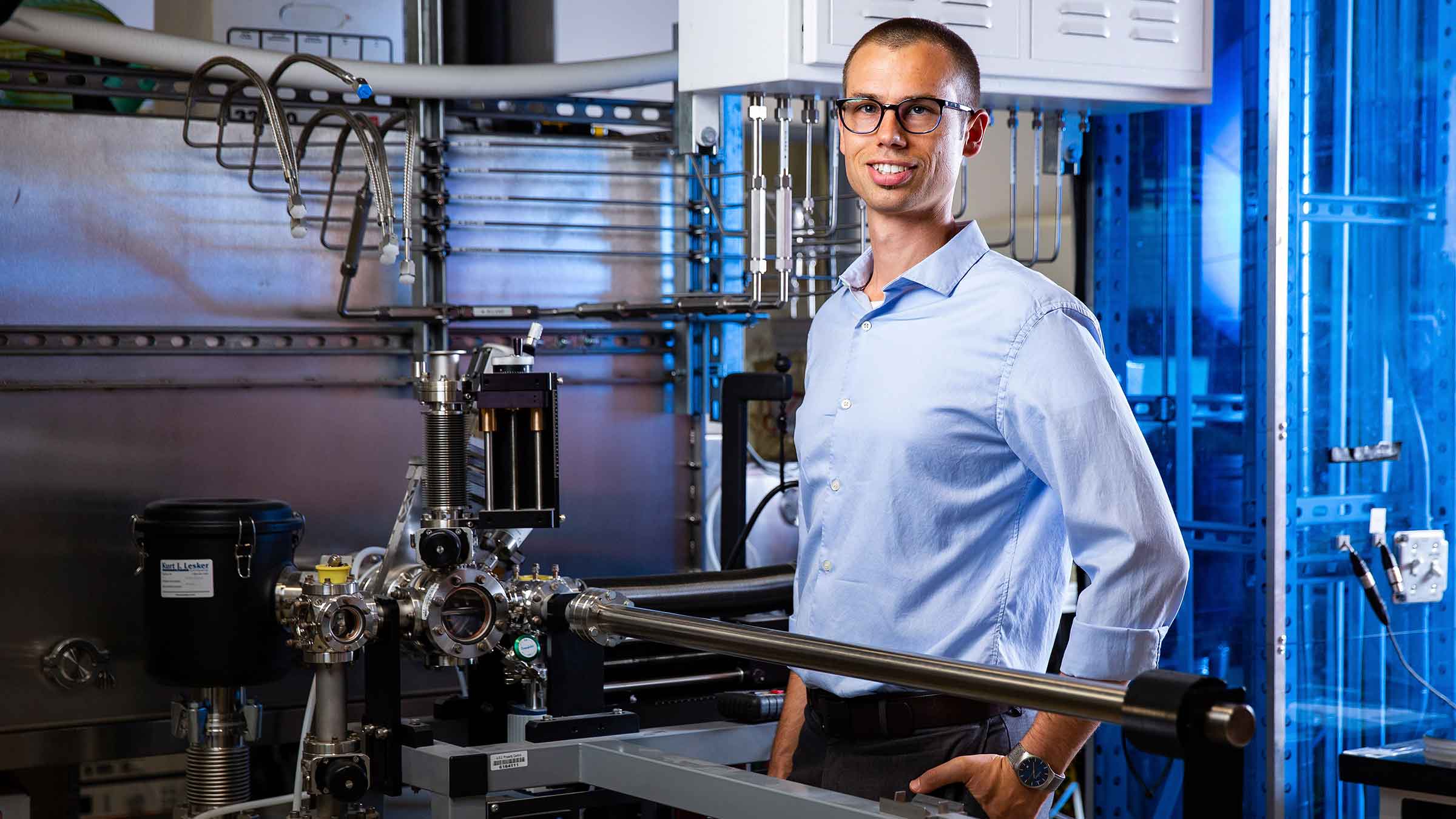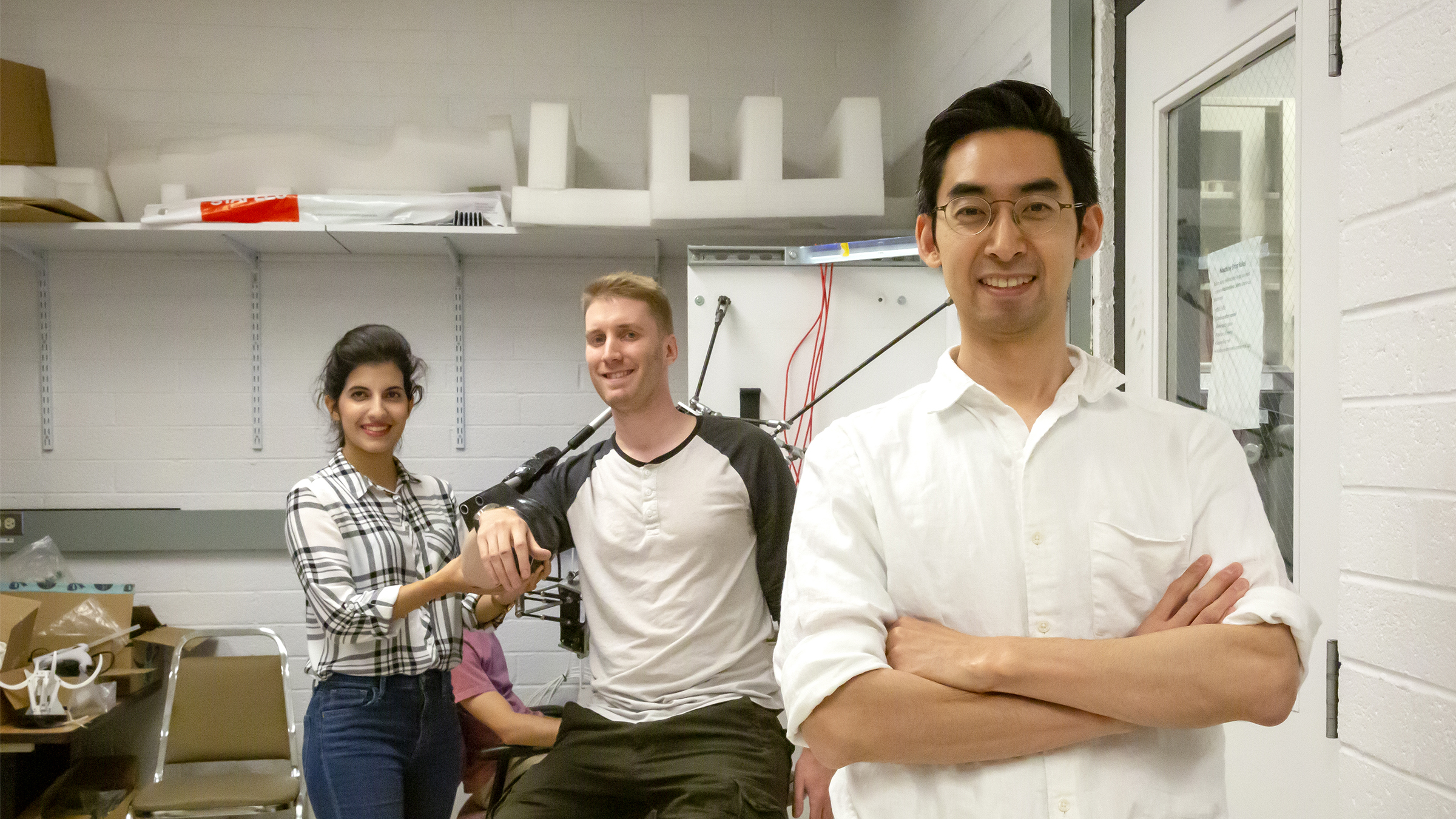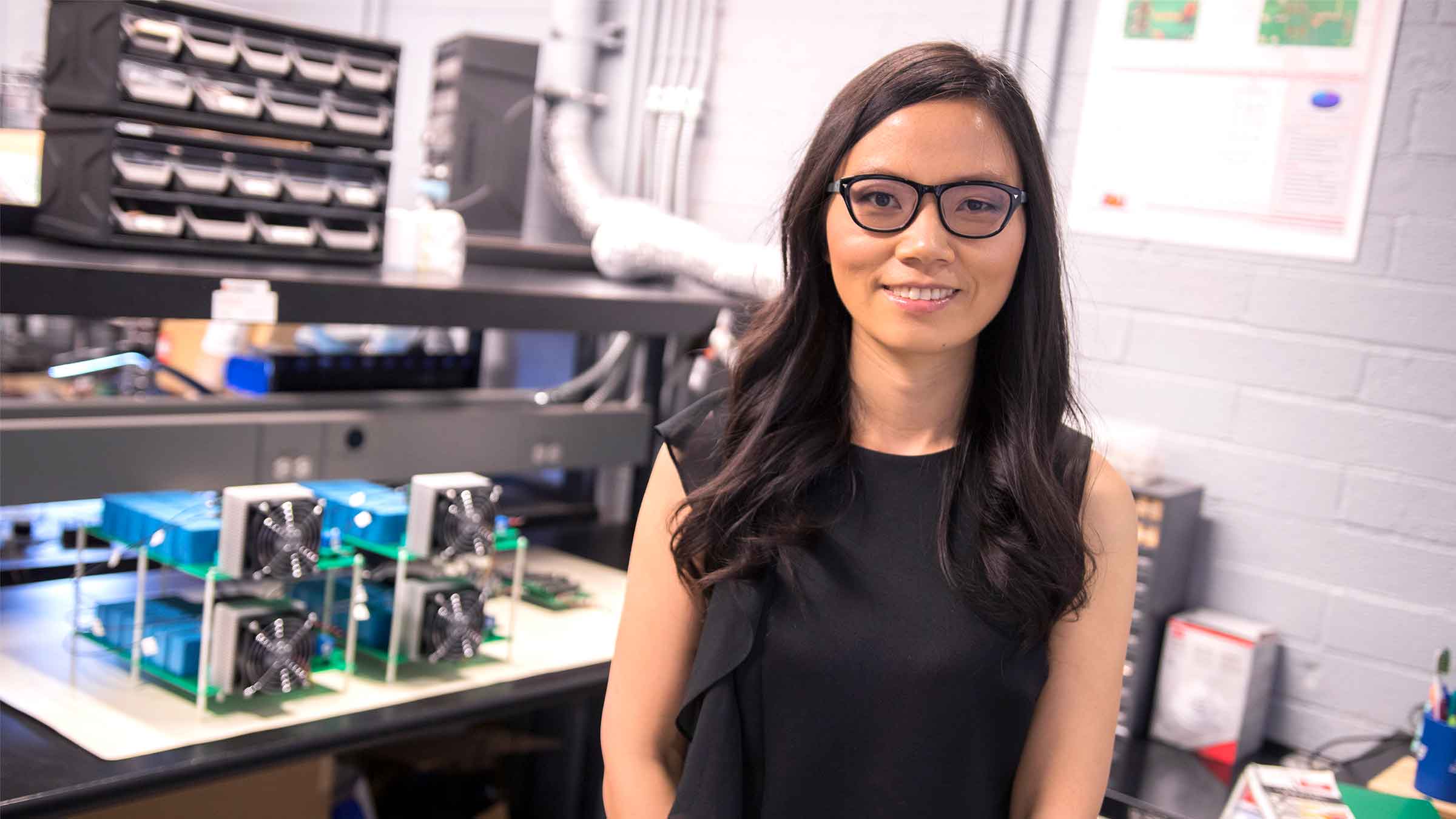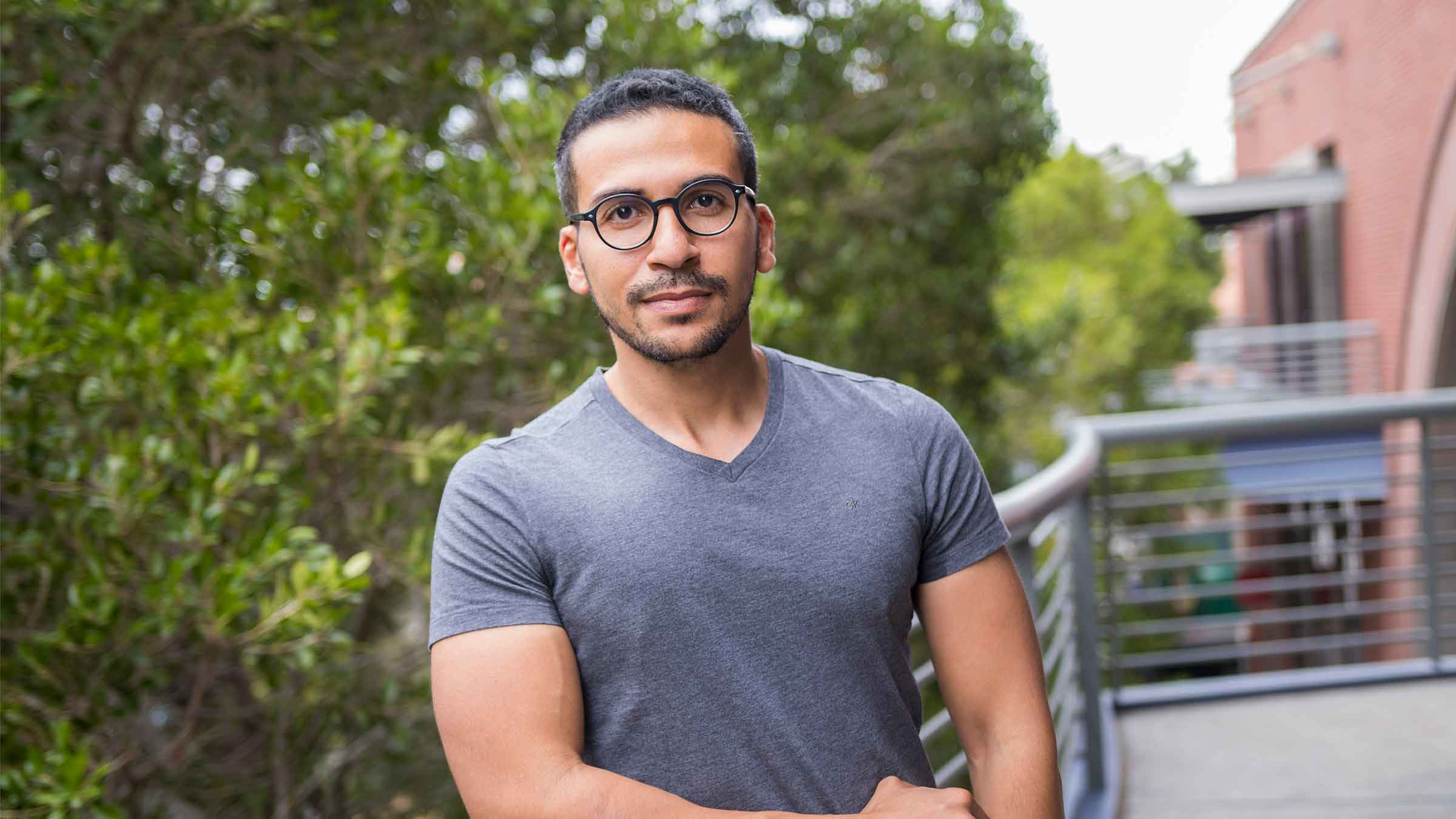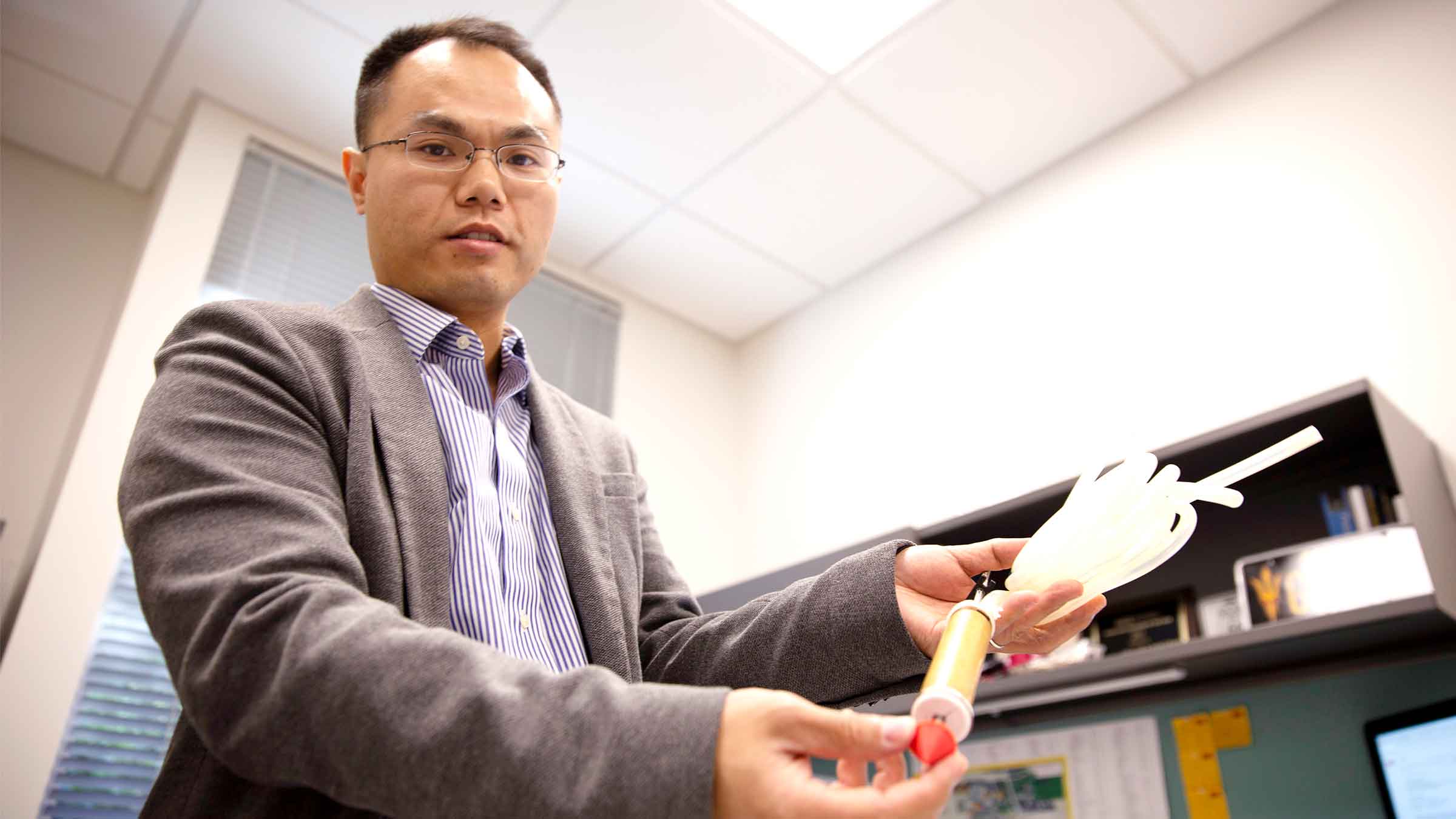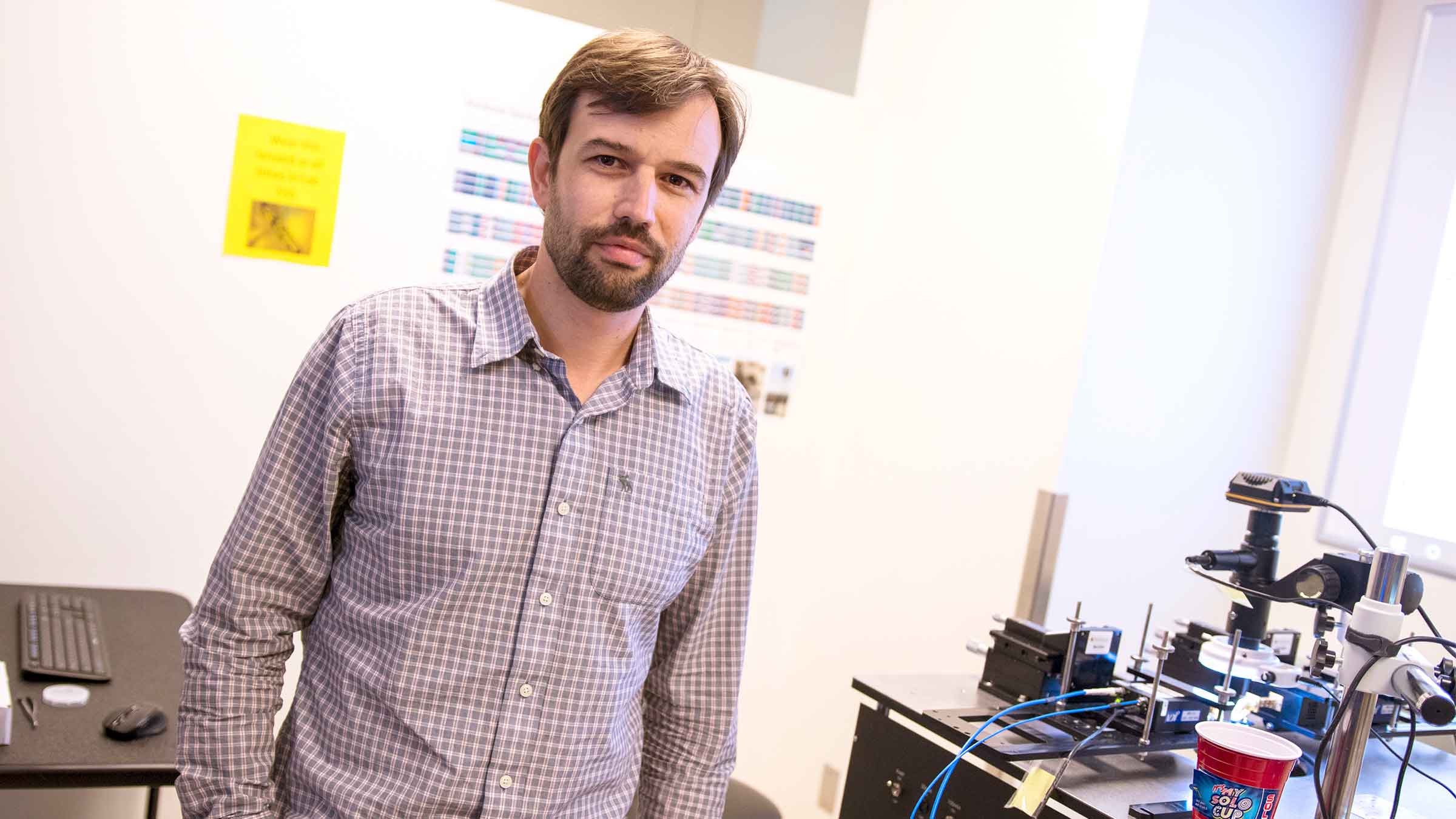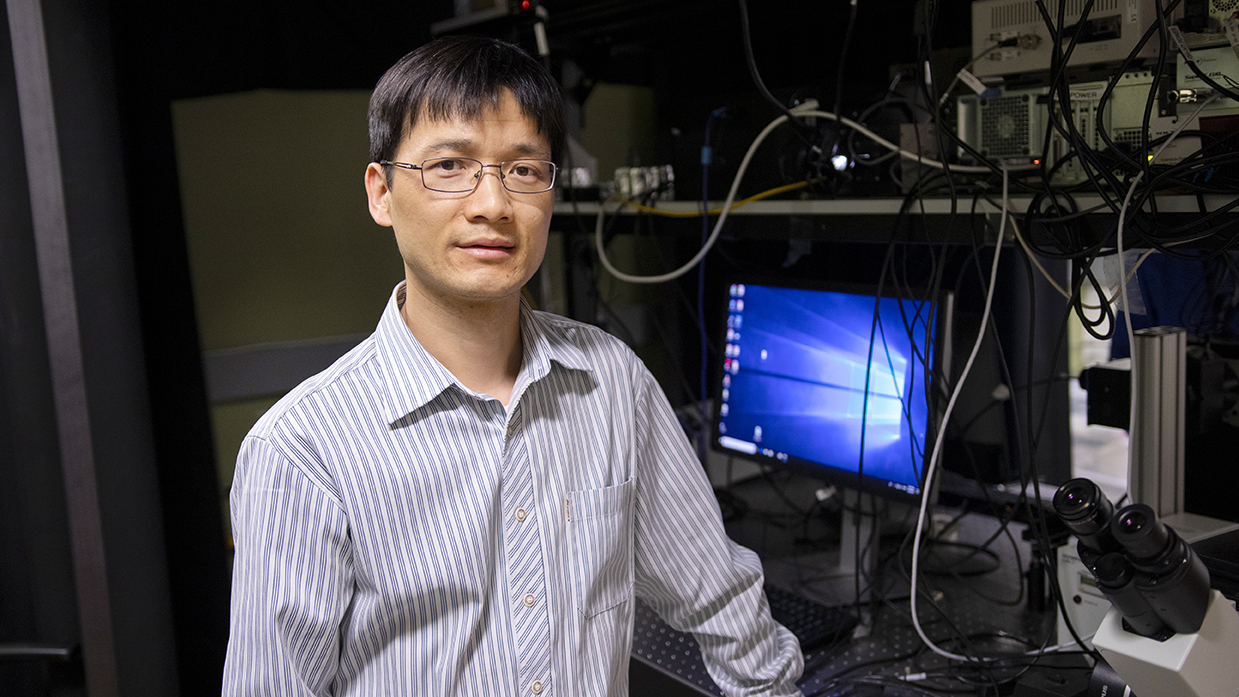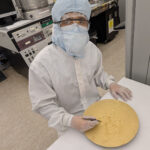
Engineering faculty members earn 10 new CAREER Awards
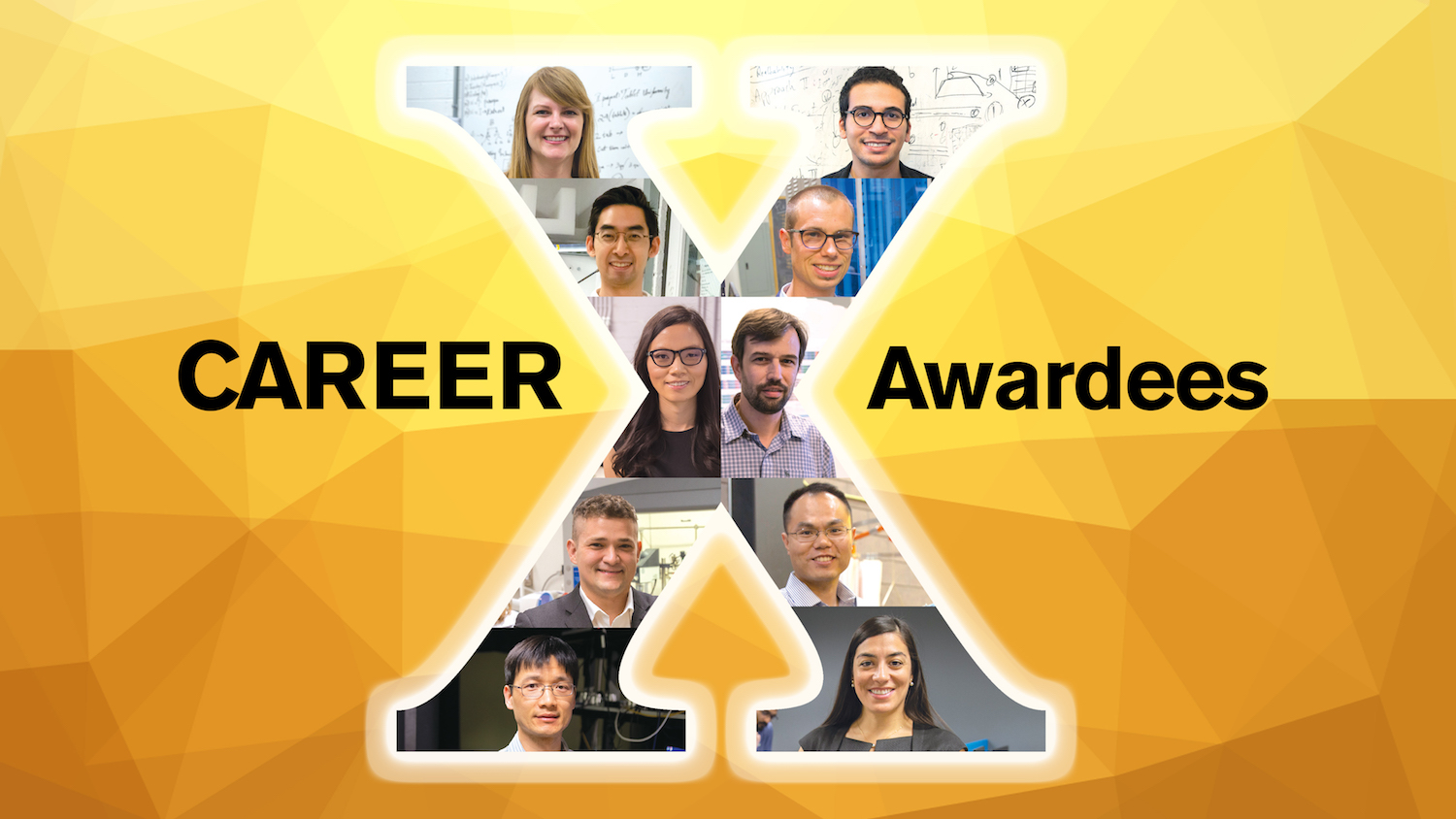
Ten faculty members in the Ira A. Fulton Schools of Engineering have received National Science Foundation Faculty Early Career Development Program (CAREER) Awards between September 2018 and April 2019. The awards total an estimated $5 million to fund their projects over the next five years. Earning the NSF CAREER award is a hallmark achievement for early career faculty members who have each developed a comprehensive plan to conduct impactful research and deliver a rich educational experience for students.
To date, 29 Fulton Schools faculty members have earned NSF CAREER Awards in the past four years.
Heather Emady
Assistant Professor Heather Emady will explore how granular particles behave in different engineering and manufacturing processes and how they can be employed to make different kinds of products, and make those processes more effective.
Stephanie Gil
Assistant Professor Stephanie Gil will develop an algorithmic and mathematical framework to achieve better coordination and localization among fleets of robots. This framework could advance robot capabilities for missions in emergency response, search and rescue, space exploration, transportation safety and more.
Matthew D. Green
Assistant Professor Matthew D. Green will develop a modular synthetic strategy to control the amount and type of charged groups within polyelectrolyte block polymers. Thus, the project will enable correlations between polymer structural characteristics and nanoscale assembly features and mechanical properties.
Zachary Holman
Assistant Professor Zachary Holman looks to better understand and augment the behavior of solar cell electrical contacts to increase the efficiency of solar energy conversion. His work could lead to solar cells that are 10 to 15 percent more efficient than solar cells today, which would increase the percentage of U.S. energy generated by solar to 17 percent by 2030.
Hyunglae Lee
Assistant Professor Hyunglae Lee is developing an innovative framework called Transparent Robotic-Aided Rehabilitation and utilizing it in exercise therapy to significantly improve the effectiveness of robot-aided rehabilitation for stroke survivors.
Qin Lei
Assistant Professor Qin Lei is working to accelerate the development and deployment of a new class of efficient, lightweight and reliable high-power, high-voltage power converters based on the series and parallel connected low voltage wide-bandgap (WBG) semiconductors through transformational gate driving and device protection techniques that enable effective operation at high switching frequency, high temperature and low loss.
Mohamed Sarwat
Assistant Professor Mohamed Sarwat is building innovative scalable technologies capable of seamlessly connecting data collected from various internet of things devices. This research is the first step toward building next-generation computing infrastructure that can effectively manage and analyze the ever-growing internet of things data.
Junliang “Julian” Tao
Associate Professor Junliang “Julian” Tao’s research is exploring unique methods of mobility animals and plants use to move underground. He will use the knowledge he gains to guide designs for burrowing sensor robots to enable improved soil studies for advanced geotechnical engineering endeavors.
George Trichopoulos
Assistant Professor George Trichopoulos is pursuing advances in terahertz wave-emitting technology to develop the next generation of terahertz cameras for more effective indirect imaging of objects to aid public safety, emergency response, rescue operations, and police and firefighting services.
Chao Wang
Assistant Professor Chao Wang is developing ExoMiRChip, an integrated fluidic device on a silicon chip to improve the capabilities of liquid biopsy to diagnose cancer and infectious and neurodegenerative diseases. His solution could reduce the speed of diagnosis from days or weeks down to hours with greater accuracy.


